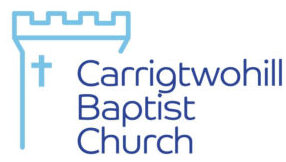I hope you have a happy Christmas, or a merry Christmas if you say it that way, and a happy New Year. I hope your celebrations this month are trouble-free and full of joy, and I hope 2023 is better for you than 2022. Of course there’s probably nothing I can do to actually make that happen for most of you, but I hope it for you anyway. We don’t know what’s around the next corner, so we might as well be optimistic about it.
I’ve always been an optimist. I’ve got so much optimism I can be an optimist for you as well, if you want me to. I can believe all the best things about your future and mine. It comes naturally for me, so it’s no trouble. The only trouble with the whole thing is the trouble that keeps popping up and spoiling my optimistic outlooks. Sometimes everything doesn’t work out. Sometimes it’s not ok. Sometimes it’s not grand, it’s not good, and it’s not even fine. As much as I hate to admit it, sometimes my optimism is just plain wrong. So I still hope you have a happy Christmas, but I’m also painfully aware that my positive thoughts won’t be able to make that happen for you.
Then again, isn’t that what Christmas is for?
God did not take on our humanity and make himself into one of us just so that he could wish us a happy Christmas, expressing his sincere hope that things would improve for us somehow in the years to come. That would have been a nice gesture, but it wouldn’t have been all that helpful. We can do that much ourselves. No, when Jesus came to earth he did not come to bring the “I hope so” kind of hope, but something else entirely. Yes, we use the same word for it—we still call it “hope”—but it’s not the same thing. It’s the difference between telling a starving man that you hope he gets dinner somehow and inviting him to a royal banquet. Jesus didn’t come to give us a friendly sentiment. He came to provide, in reality, for all our deepest needs for forgiveness, for peace, for joy, real love, and life that never ends. He came to invite us to his feast (Matthew 22:1-14). The invitation is not based on our status, goodness, or worthiness. It is based entirely on his generosity. His death is enough to provide full forgiveness to anyone who comes to him. His resurrection life is enough for any human, no matter how lost or broken or sinful or ashamed, to be fully restored.
This is hope. The actual thing. The secure, firm, unshakable thing that doesn’t evaporate like my optimism does in the face of difficult realities. This hope is bigger than all the troubles of the world put together, more stable than the ground under our feet, and it lasts longer, too. It is based on God’s provision, so no human can steal it. It is given by a Saviour who has already defeated death, so nothing can destroy it. In Christ, “we have this hope as an anchor for the soul, firm and secure” (Hebrews 6:19).
I hope you have a wonderful Christmas and a happy New Year. But don’t count on my optimism to make it happen. Put your anchor down into the only fully secure hope this world has ever known: the hope that Jesus won for those who trust in him. This is the hope we celebrate at Christmas.
